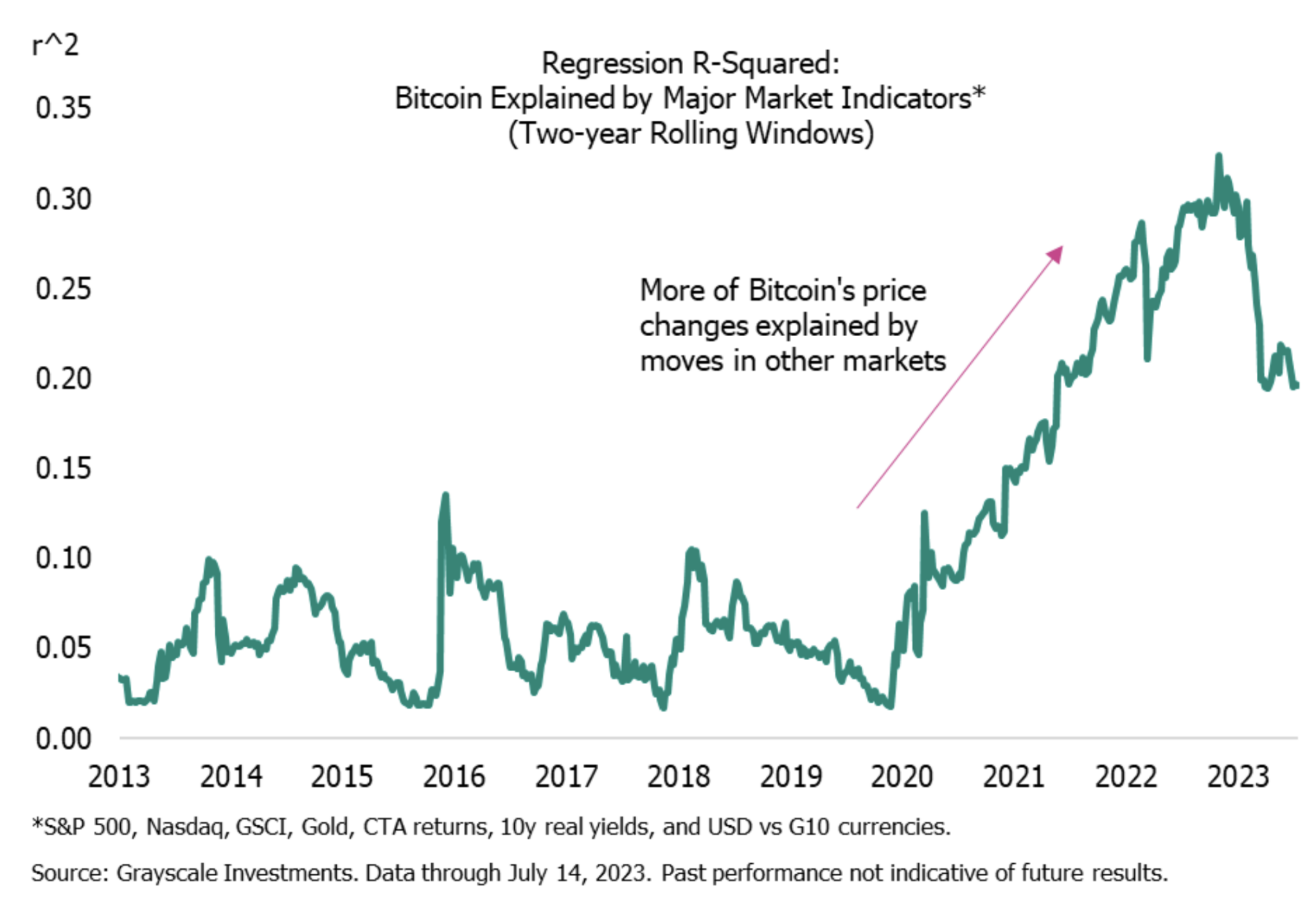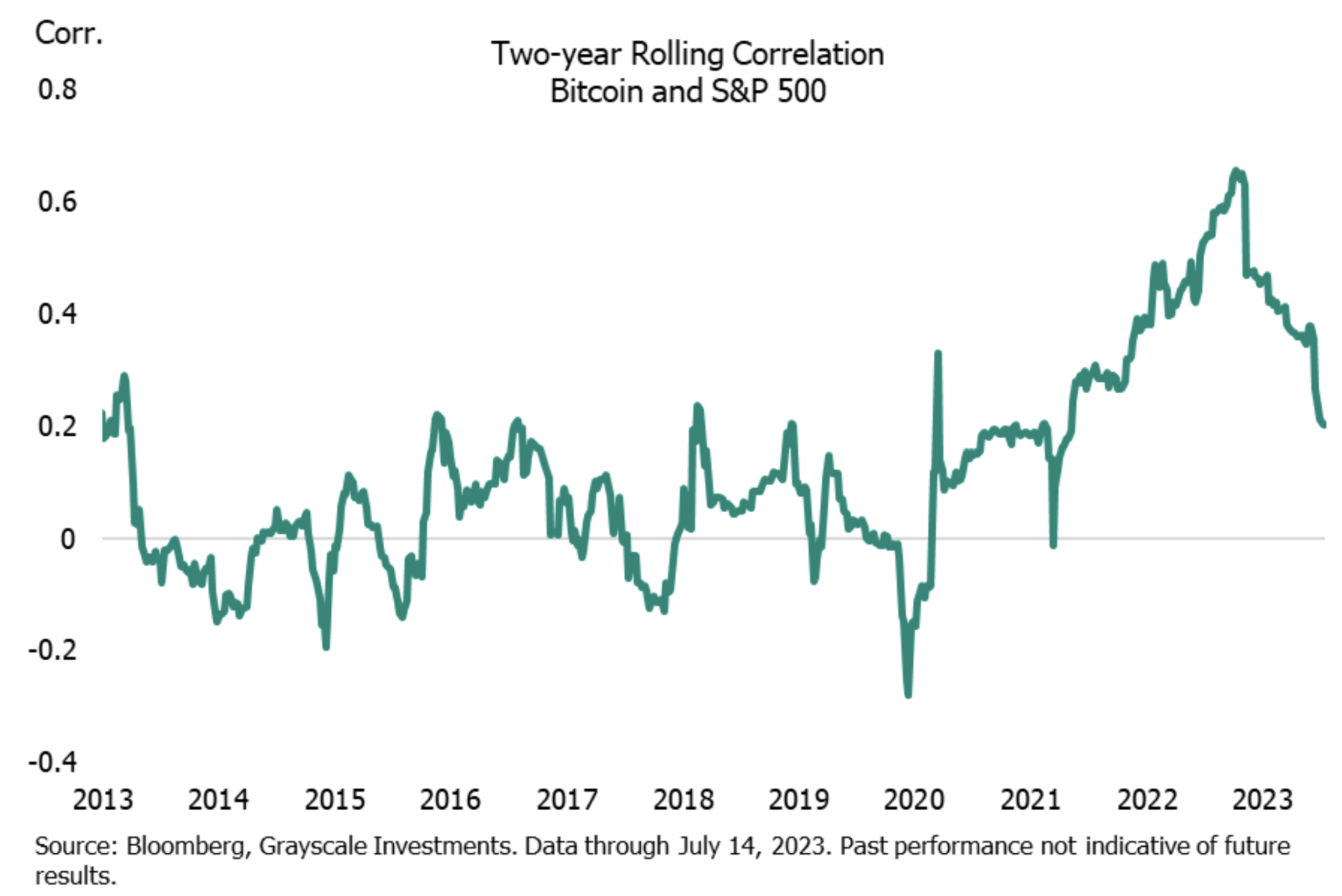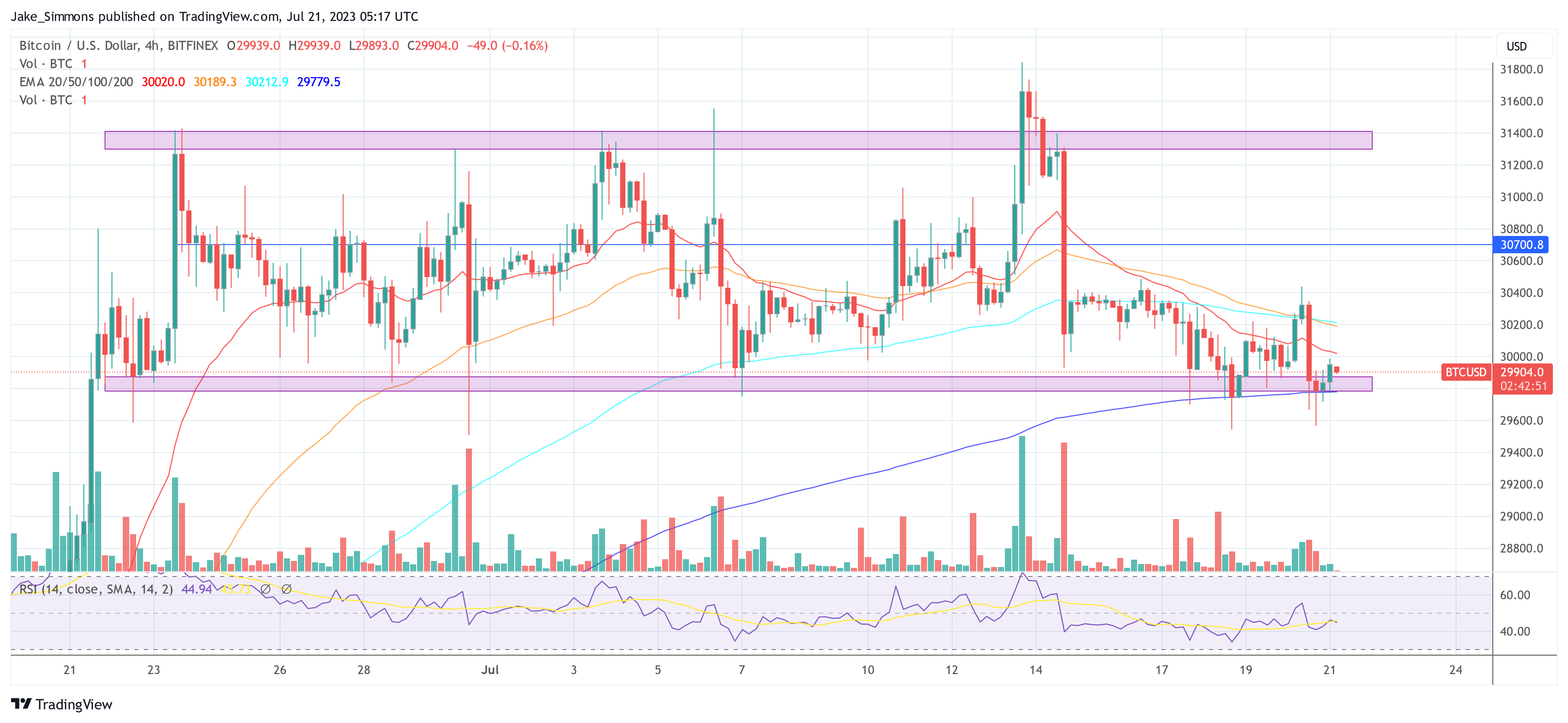For years, Bitcoin and crypto have long been regarded as independent assets, detached from traditional financial markets. However, a research report by Grayscale, a prominent digital asset investment firm, uncovers a significant transformation in this paradigm over the past three years. The report delves into the evolving correlation between BTC and macroeconomic trends, revealing how the once-isolated market now intertwines with broader market indicators.
Dawn Of A New Era For Bitcoin And Crypto
In the past, Bitcoin and crypto operated in relative isolation from traditional markets, showing little correlation with equities or currencies. This scenario began to shift with the advent of the COVID-19 pandemic, which acted as a catalyst for changing dynamics.

Grayscale’s research analyzes data from the last three years, demonstrating that BTC’s correlation with the S&P 500 and other market variables has increasingly turned positive. At its peak in October 2022, the correlation reached a remarkable 65%, indicating that BTC and crypto are now significantly influenced by macroeconomic developments.
“Crypto no longer behaves as its own ecosystem: Bitcoin and other digital assets are now more correlated with other market indicators,” states Grayscale in their report.

Employing a range of analytical methodologies, they estimate that approximately 50% of Bitcoin’s astounding 80% surge from December to July can be attributed to broader market dynamics. The remaining 50% reflects factors unique to the Bitcoin realm.
“Our best estimate would be roughly 50%. In other words, we believe about half of Bitcoin’s ~80% increase from December to mid-July likely relates to macro developments, while the other half is likely explained by Bitcoin-specific positives,” Grayscale’s researchers elucidate.
To exemplify the influence of macro trends, Grayscale employs beta analysis—a statistical measure to gauge how BTC’s value reacts to changes in other market indicators.
After considering various variables, the researchers find that BTC’s 82% gain in the first half of the year surpasses what could be explained by appreciation in other markets and BTC’s historical beta. The median predicted increase based on this analysis stands at 26%—only about one third of BTC’s actual gain.
“The increase in the Nasdaq–the index with the highest correlation to Bitcoin this calendar year–explains about half of BTC’s price appreciation,” the report highlights.
Grayscale’s researchers emphasize specific factors that likely contributed to BTC’s outperformance. These include optimism surrounding the potential approval of a spot Bitcoin ETF in the US market and the surge in BTC price following stress in regional banks in March. Furthermore, the crypto market’s resilience and potential for rebound after the steep drawdown last year may have bolstered its growth.
In conclusion, the report cautions that Bitcoin and crypto valuations are now more closely tied to broader macro trends. As such, incoming inflation data and the Federal Reserve’s response could have implications for BTC and other digital assets. A scenario where inflation cools, allowing the Fed to halt its rate hikes, could sustain this year’s rally in risk assets. On the contrary, if inflation persists, further Fed rate hikes could act as a headwind.
At press time, BTC remained near its range lows, trading at $29,904.








